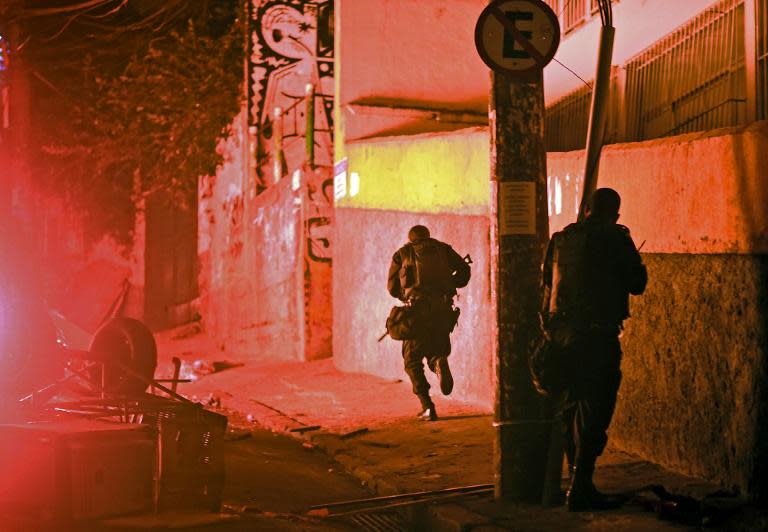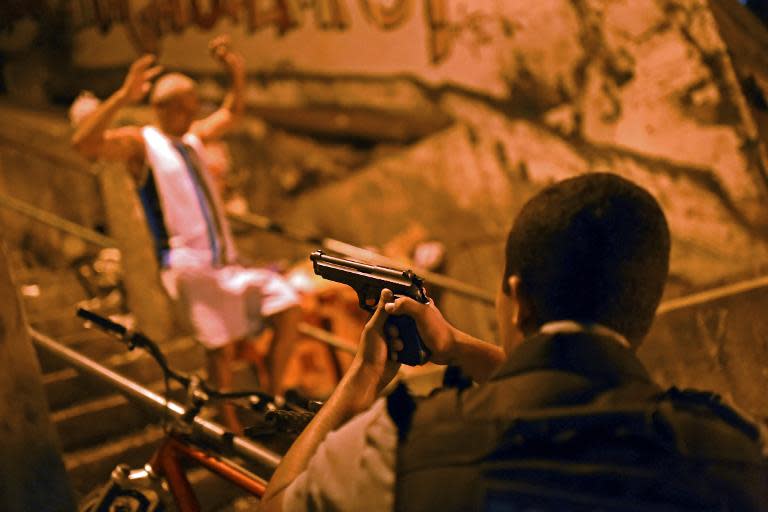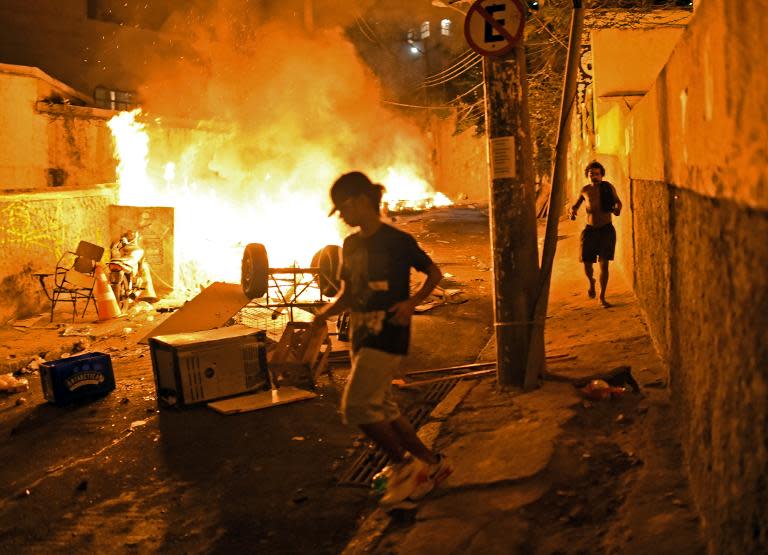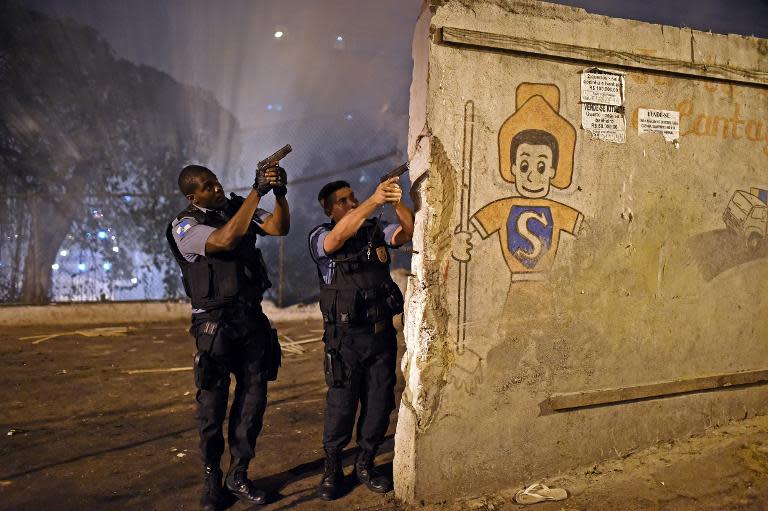Rio security ramped up after deadly unrest
Just 50 days before Brazil hosts the World Cup, authorities beefed up security Wednesday in Rio de Janeiro after a violent clash between residents and police in a slum near the tourist haven of Copacabana beach. Dozens of military police, including members of a special forces battalion, moved into the Pavao-Pavaozinho slum, which is also not far from the well-heeled Ipanema district, an AFP journalist reported. The security operation comes after protests late Tuesday by residents over the death of a dancer who residents say was the victim of police brutality. A 27-year-old man was fatally shot in the head during the protests. The deadly unrest was another blow for Rio's public image as Brazil prepares to host the month-long World Cup, which kicks off on June 12, and the Summer Olympic Games in 2016. Relative calm had returned to the area on Wednesday, a public holiday in Rio, as firefighters and cleaners swept up broken glass and rubble from tire barricades that residents had set ablaze the night before. Just meters away, surfers carrying their boards walked past heavily-armed police to enjoy the beach's famed waves. - Crime crackdown no easy task - Rio will host seven World Cup matches, including the final -- but violence has recently flared in several of the city's slums known as favelas, as the government struggles to crack down on organized crime. Since 2008, city authorities have established dozen of so-called "pacification" units in the favelas, including Pavao-Pavaozinho. Many of them nevertheless remain under the sway of crime lords and violent drug gangs -- and those gangs are fighting back, attacking police as they defend their turf. Last month, President Dilma Rousseff sent in army support at Rio's request to back police. But police efforts have been hampered by allegations of a heavy-handed approach. The unrest in Pavao-Pavaozinho was sparked by the death of a 25-year-old dancer who works for broadcaster Globo TV. Friends of the victim, identified as Douglas Rafael da Silva Pereira, said police had mistaken him for a drug dealer. His body was found in a school early Tuesday, prompting an angry reaction from young people in the favela. They clashed with police, who responded with pepper spray and tear gas. Police said marks on the body were compatible with a death from a fall. But the man's mother, Maria de Fatima da Silva, accused the police of "torturing" her son. "It was as if someone had pierced him with an iron object," she said. "There was a lot of blood, as if he had been dragged along the wall," she told Globo television. An autopsy report published Wednesday by Globo web news portal G1 showed the cause of death as having been "internal hemorrhaging caused by a perforating injury to the thorax." Residents said police fired on them late Tuesday during the protest. "The police were firing real bullets and residents were protecting themselves as they could while throwing stones and bottles," one resident, who gave his name as Fabio, told AFP. He and several other local people indicated a 12-year-old boy was also killed by police during the protest, but authorities were unable to confirm the claim.







